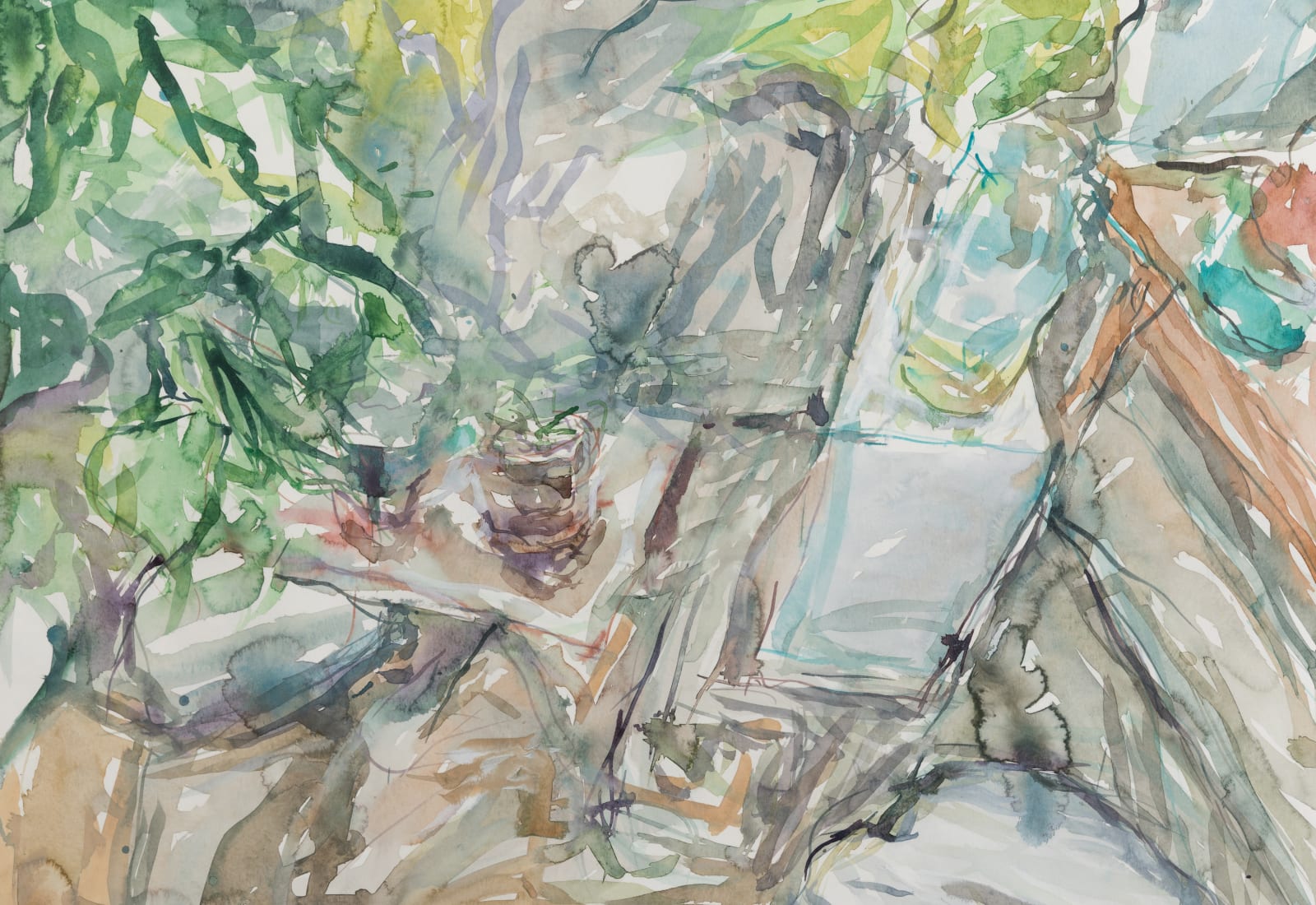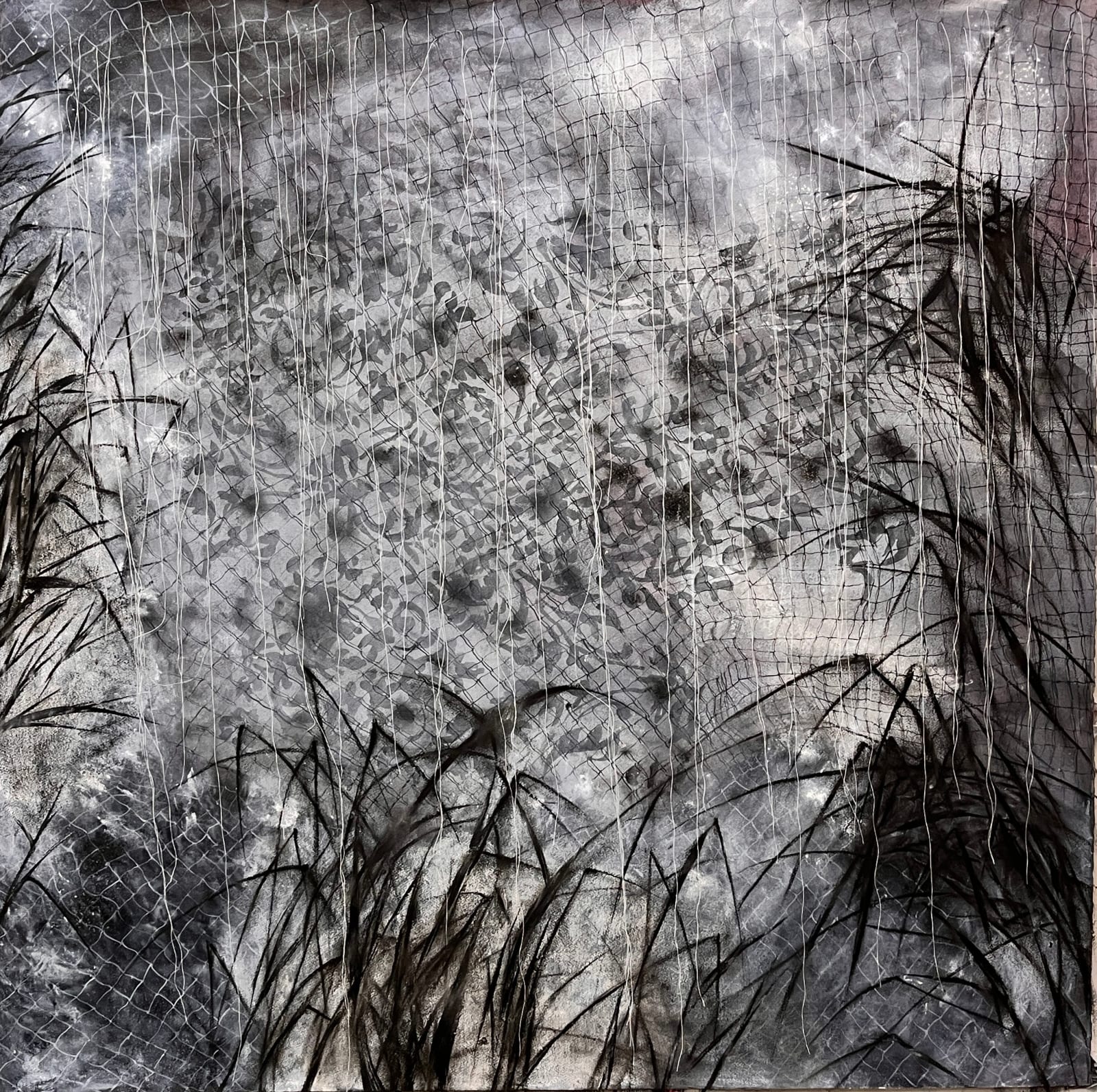Frieze Seoul 2025
Mind Set Art Center is delighted to announce its second participation in Frieze Seoul 2025 with Chora: A Feminine Space, an exhibition that brings together six women artists from different generations to explore female identity, memory, and embodied experience through painting, mixed media, and site-specific installations. Featuring artists born between the 1960s and 1990s—Juin Shieh, Ana Maria Micu, Marina Cruz, Lo Yi-Chun, Lee Jo-Mei, and Yang Yu-Ning—the exhibition offers a collective yet multifaceted portrait of what constitutes a feminine space today. The fair will open with a VIP Preview on September 3, followed by Public Days from September 4 to 6.
Juin Shieh transforms the intricacies of women’s daily life and existential conditions into unique artistic propositions. By abstracting kitchens, household chores, and labor into visual motifs and ornamental patterns, she elevates the minutiae of daily routines into recurring artistic themes. This transformation deepens her exploration of female corporeality while cultivating a rich visual vocabulary and personal philosophy. Her works embody both resilience and sensitivity, resonating as a distinctive voice on women’s cultural and social presence. Romanian artist Ana Maria Micu turns an introspective gaze toward her immediate surroundings, meticulously depicting domestic interiors and plants. Blending realism with abstraction, her paintings evoke quiet reflections on care, time, and the nuances of everyday life.
From the Philippines, Marina Cruz draws from both family memory and material culture in her paintings. Recent works revisit the flooding of her ancestral home, transforming the house as a symbol of origin into a metaphor for memory, loss, and the presence and absence of loved ones. Her well-known garment series delicately renders the textures of fabric surfaces, conveying both the intimacy of touch and the scars of family history. Through these layers, Cruz turns personal objects into meditations on lineage, memory, and the passage of time. Taiwanese artist Lo Yi-Chun engages with cultural and geopolitical histories through materials imbued with meaning, often using sun-dried banana peels to create sculptural installations that map Taiwan’s colonial and trade histories across cities such as Boston, Munich, Yokohama, Kaohsiung, and Hong Kong. Her work Colonel Reading Letters, presented in this exhibition, reimagines Gabriel García Márquez’s novel No One Writes to the Colonel. In the story, the colonel dresses in his best attire every Friday, waiting for a letter that never arrives. Lo rewrites this absence through her composition: the colonel finally receives the letter and is seen reading it intently. This tender reinterpretation offers resolution to a futile wait, reflecting the power of art to re-create history and literature.
Lee Jo-Mei merges drawing, paper-cutting, and sculptural techniques into a hybrid visual language that bridges the linear elegance of Eastern art with the spatial dynamism of contemporary Western practice. Her suspended, origami-like forms animate the space with a delicate tension between two- and three-dimensionality. The youngest among the group, Yang Yu-Ning, reimagines the tradition of ink painting through experiments with soot ink and parchment paper. Her ethereal landscapes and botanical imagery open imaginative terrains where memory, image, and dream converge, offering a poetic and contemporary approach to the ink medium.
Lo’s sculptures converse with Cruz’s textile paintings, while Lee’s suspended forms introduce rhythm and movement. Centralized lighting emphasizes Shieh’s mythological compositions and Yang’s meditative ink works, shaping a layered and contemplative viewing experience. Ultimately, Chora emerges as a transformative space shaped by memory, material, and embodied presence. Through intergenerational voices and diverse practices, the exhibition invites viewers into a resonant dialogue on womanhood, identity, and artistic legacy.

















